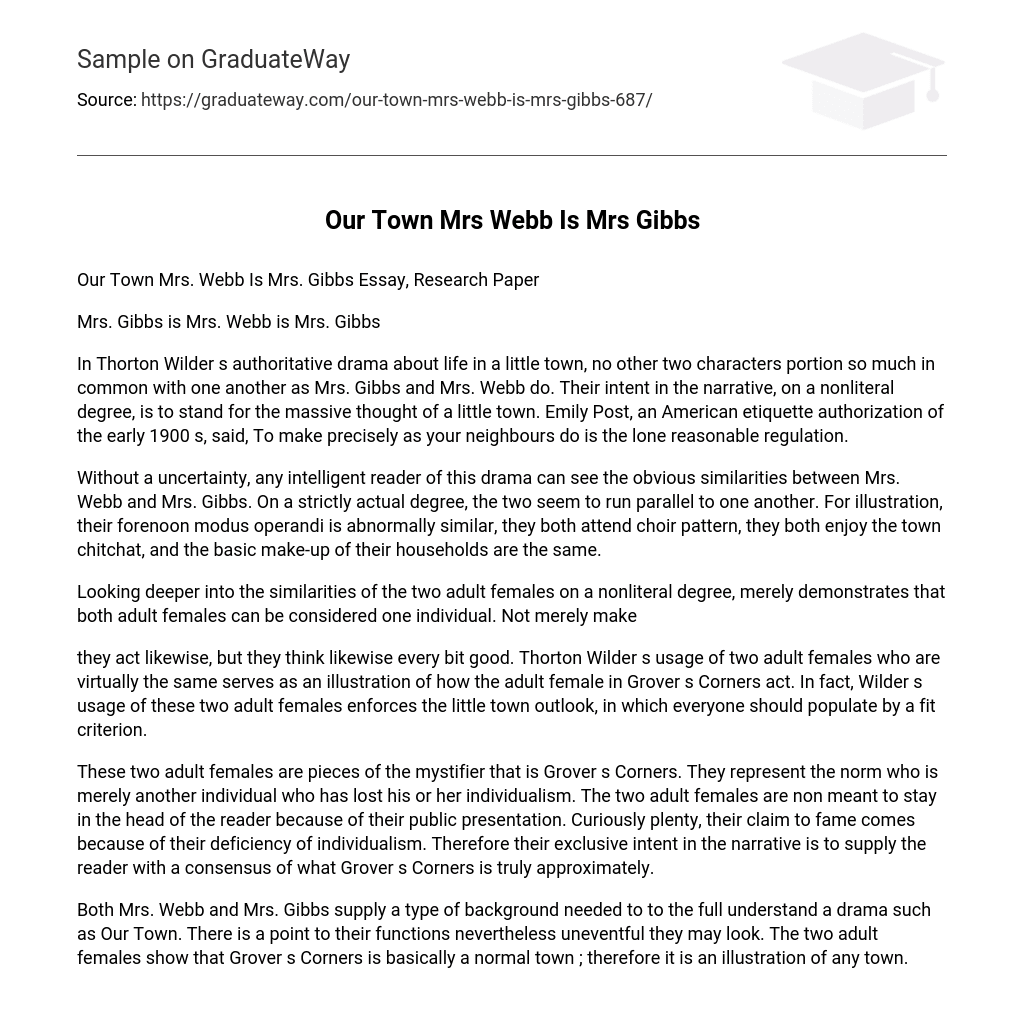Our Town: Mrs. Webb Is Mrs. Gibbs Essay, Research Paper
Mrs. Gibbs, Mrs. Webb, and Mrs. Gibbs
In Thorton Wilder’s play about life in a small town, Mrs. Gibbs and Mrs. Webb are the two characters who share the most similarities. Symbolically, they represent the overall idea of a small town. According to Emily Post, an authority on American etiquette from the early 1900s, the only reasonable rule is to do exactly as your neighbors do.
Upon closer examination of this drama, it becomes evident that Mrs. Webb and Mrs. Gibbs possess notable resemblances. From a literal standpoint, they appear to mirror one another in several aspects. For example, their morning routines exhibit striking similarities; both participate in choir practice and derive pleasure from the local gossip circulating within their community. Moreover, their households share a fundamental similarity in structure.
Examining the underlying similarities of the two adult females on a figurative level suggests that they can be seen as the same person. Not only do both women possess these qualities, but they can also be considered as a single entity.
They behave similarly and also have similar thoughts. Thorton Wilder uses two women who are practically identical to demonstrate how the women in Grover’s Corners behave. In fact, Wilder’s inclusion of these two women reinforces the town’s mentality that everyone should live up to a certain standard.
These two women are part of the puzzle that is Grover’s Corners. They symbolize the average person who has lost their uniqueness. Despite their lack of individuality, they are important in understanding what Grover’s Corners is all about.
Both Mrs. Webb and Mrs. Gibbs provide a necessary background to fully comprehend a drama like Our Town. Despite appearing uneventful, their roles serve a purpose. These two women demonstrate that Grover’s Corners is, essentially, an ordinary town, making it representative of any town.





